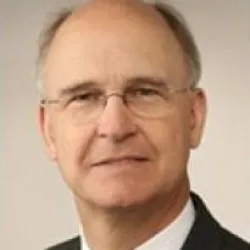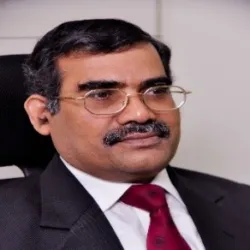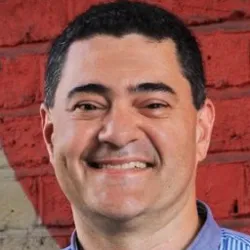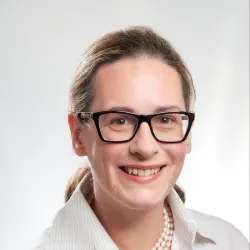FMI and Fintech: Oversight and Innovation in Payments and Settlements - main page Q4
FMI and Fintech: Oversight and Innovation in Payments and Settlements
FMI and Fintech: Oversight and Innovation in Payments and Settlements
November 22 – 25
Chair: Richard Heckinger, former vice-president and senior policy advisor, Federal Reserve Bank of Chicago
Innovation in financial technology continues to re-draw the contours of the oversight landscape. New players, new risks, new products, new networks.
In 2022, CBDCs, crypto assets and stablecoins have the potential to revolutionise payments, yet they also present significant challenges and disruptions. Traditional methods of payments increasingly seem outdated, and central banks are at risk of falling behind if they do not foster the new developments.
The question for overseers is how to strike a balance between promoting innovation, encouraging competition and protecting the financial system.
This course is designed to equip central bankers to meet these challenges.
Each day will feature three hours of expert-led Live Content to maximise the opportunity to share and learn. The chair will ensure participants have opportunities to network throughout the course, culminating in the Practical Implementation Workshop.
Timings: 7am-11am (EST) | 12pm-4pm (GMT) | 8pm-12am (SGT)
Course agenda
Two weeks prior to your training course you will be emailed access to our content hub with course materials, including a trial to Central Banking if you are not already subscribed. There will be a combination of articles, reports and presentations that will contribute to two hours of preparation time for the live content. Presentations for the sessions will also be held here subject to the speaker approval.
The Key Risks in the Changing Landscape of Payments
12:00 – 12:15
Course introduction
Course introduction session led by the chair
06:00 - 06:15
- Introductions and welcome from the chairperson
- Overview of the training course
- Discussion of the delegate expectations
Richard Heckinger is a financial markets management professional. He retired in 2015 as Vice President and Senior Policy Advisor, Financial Markets Group, at the Federal Reserve Bank of Chicago. He started his career in financial markets at the Chicago Board Options Exchange in 1973, with subsequent executive positions at the Montreal (Stock) Exchange, the Chicago Mercantile Exchange as Clearing House Manager, and as Vice President, Financial Marketing, with a four-year posting in its London Representative Office. Following that, he was Chief Operating Officer and Council (Board) Member of the Stock Exchange of Hong Kong, and eventually Chief Executive and Board Member of its subsidiary, the Hong Kong Securities Clearing Corporation. After six years in Hong Kong he joined State Street Corp. in Boston as Senior Vice President, Global Operations. Other experience includes Head of the U.S. Representative Office for Deutsche Börse AG and Eurex. He has served on international committees, including a Federal Reserve Bank of New York working group, the OTC Derivatives Regulators’ Forum, SWIFT, and the International Securities Services Association (ISSA). Presently, he is a Contributing Editor to the Central Banking Journal, Associate Editor of the Journal of Financial Market Infrastructure and a Member of the Editorial Advisory Board of the Global Commodities Applied Research Digest. He earned an M.Phil. degree in Economics from the London School of Economics, a B.A. degree in Mathematics from the Illinois State University, is a U.S. Army (Infantry) veteran and completed the Advanced Management Course at the University of Chicago.
12:15 – 13:15
Impact of technology on the oversight framework: key challenges in focus
06:15 - 07:15
- The state of the art of financial technology in 2021
- Key forces, trends and dynamics shaping financial market innovation
- Unavoidable risks, critical challenges and emerging opportunities
- Discussion: how do central banks need to change to make the most of fintech?
Richard Heckinger is a financial markets management professional. He retired in 2015 as Vice President and Senior Policy Advisor, Financial Markets Group, at the Federal Reserve Bank of Chicago. He started his career in financial markets at the Chicago Board Options Exchange in 1973, with subsequent executive positions at the Montreal (Stock) Exchange, the Chicago Mercantile Exchange as Clearing House Manager, and as Vice President, Financial Marketing, with a four-year posting in its London Representative Office. Following that, he was Chief Operating Officer and Council (Board) Member of the Stock Exchange of Hong Kong, and eventually Chief Executive and Board Member of its subsidiary, the Hong Kong Securities Clearing Corporation. After six years in Hong Kong he joined State Street Corp. in Boston as Senior Vice President, Global Operations. Other experience includes Head of the U.S. Representative Office for Deutsche Börse AG and Eurex. He has served on international committees, including a Federal Reserve Bank of New York working group, the OTC Derivatives Regulators’ Forum, SWIFT, and the International Securities Services Association (ISSA). Presently, he is a Contributing Editor to the Central Banking Journal, Associate Editor of the Journal of Financial Market Infrastructure and a Member of the Editorial Advisory Board of the Global Commodities Applied Research Digest. He earned an M.Phil. degree in Economics from the London School of Economics, a B.A. degree in Mathematics from the Illinois State University, is a U.S. Army (Infantry) veteran and completed the Advanced Management Course at the University of Chicago.
13:15 – 13:30
Break
07:15 - 07:30
13:30 – 14:30
CBDCs, stablecoins and crypto assets: what are the implications for payments and settlements?
07:30 - 08:30
- Differences and overlaps between privately issued crypto assets and central bank digital currencies (CBDC)
- Building blocks of effective regulatory and supervisory frameworks for privately issued crypto assets
- Implications of CBDCs for financial stability, payments and settlements
- Discussion: do CBDCs represent a realistic and desirable goal?
James Chapman is the senior research director in the Funds Management and Banking Department at the Bank of Canada. He received a Ph.D. in Economics and an MSc in Statistics from the University of Iowa in 2006. He joined the Bank of Canada as a senior analyst in that year. His primary research focus has been on interbank market and financial market infrastructure issues such as liquidity risk and credit risk in large-value payment systems as well as the efficiency of interbank markets. Recently his research focus has evolved to include research on fintech related topics. These topics include the use of distributed ledger technology in financial market infrastructure, specifically the Bank’s Project Jasper, as well as questions related to digital currencies such as Bitcoin, Ethereum and initial coin offerings.
14:30 – 15:00
Networking break
An opportunity to share experiences with your fellow participants.
14:30 - 15:00
15:00 – 16:00
Financial inclusion and digital financial services
14:30 - 15:30
- Overview of current state of Financial System Ecosystem
- Understanding Financial Inclusion
- Mobile Money and Agency Banking
- Discussion: How is DFS enhancing financial inclusion?
Abhaya Prasad Hota, - former Head of Payment Systems in Reserve Bank of India is known for his valuable contribution in design and development of payment system in India. After his central banking experience for 27 years mostly in the area of payments and technology, he headed the umbrella retail payments institution named National Payments Corporation of India (NPCI) during 2009-2017 as its founding CEO. NPCI today handles 10 out of 13 types of retail payment systems in the country accounting for almost 80 percent of all inter-bank retail payment transactions. He played the key role in building the real time 24x7 retail money transfer system ( handling 110 million transactions a day), domestic card payment system (the largest in the country in terms of number of cards issued in the country) and identity based Direct Benefit Transfer system ( all government subsidies for social welfare programs passing through this DBT system).
Currently he serves as an Independent Director in the Boards of a few organisations in the area of banking and finance and speaks at various fora on design and development of national level payment system. During the year 2018-19, he was also in the World Bank Panel of Experts on Payment Systems.
Regulating and Improving Payments
12:00 – 13:00
Impact of technology on the oversight framework: key challenges in focus
06:15 - 07:15
- The state of the art of financial technology in 2021
- Key forces, trends and dynamics shaping financial market innovation
- Unavoidable risks, critical challenges and emerging opportunities
- Discussion: how do central banks need to change to make the most of fintech?
Richard Heckinger is a financial markets management professional. He retired in 2015 as Vice President and Senior Policy Advisor, Financial Markets Group, at the Federal Reserve Bank of Chicago. He started his career in financial markets at the Chicago Board Options Exchange in 1973, with subsequent executive positions at the Montreal (Stock) Exchange, the Chicago Mercantile Exchange as Clearing House Manager, and as Vice President, Financial Marketing, with a four-year posting in its London Representative Office. Following that, he was Chief Operating Officer and Council (Board) Member of the Stock Exchange of Hong Kong, and eventually Chief Executive and Board Member of its subsidiary, the Hong Kong Securities Clearing Corporation. After six years in Hong Kong he joined State Street Corp. in Boston as Senior Vice President, Global Operations. Other experience includes Head of the U.S. Representative Office for Deutsche Börse AG and Eurex. He has served on international committees, including a Federal Reserve Bank of New York working group, the OTC Derivatives Regulators’ Forum, SWIFT, and the International Securities Services Association (ISSA). Presently, he is a Contributing Editor to the Central Banking Journal, Associate Editor of the Journal of Financial Market Infrastructure and a Member of the Editorial Advisory Board of the Global Commodities Applied Research Digest. He earned an M.Phil. degree in Economics from the London School of Economics, a B.A. degree in Mathematics from the Illinois State University, is a U.S. Army (Infantry) veteran and completed the Advanced Management Course at the University of Chicago.
13:00 – 13:15
Break
07:00 - 07:15
13:15 – 14:15
Making real-time payments a reality: an overseers’ guide
13:15 - 14:15
- What is the distinction between wholesale and retail payments?
- What are the different approaches central banks can take for real time payments?
- Challenges that have arisen as more and more central banks create real-time payments
- Opportunities from central bank experiences
Patrick Papsdorf is Head of Section of Payments Oversight in the Directorate General Payments and Market Infrastructure (DG-MIP) at the European Central Bank (ECB). His area of responsibility comprises the oversight of payment systems and schemes, and encompasses the assessment of emerging risks and developments in the payments ecosystem, including aspects cyber resilience and financial innovation. Prior to this, Mr Papsdorf was Adviser to DG-MIP's Market Infrastructure Management Division, where he was in charge of analytical and compliance matters, and contributed to the operations and development of key market infrastructures.
Earlier positions include a commercial bank, the Deutsche Bundesbank and the Federal Reserve Bank of New York. Mr Papsdorf holds the German recognition as bank officer, a bachelor's degree in business management from the University of the Deutsche Bundesbank and a master in global management.
14:15 – 14:30
Break
08:15 - 08:30
14:30 – 15:30
Enabling CBDC and the role of digital identity in payments
08:30 - 09:30
- Tokenisation for real time settlement
- CBDC experimentations
- How digital identity can be integrated in compliance processes
Marjan is an entrepreneurial executive dedicated to business growth, profitability, and innovation by skillfully investing in the power of human capital and technology.
She has broad international experience, a deep understanding of business and financial markets, and a proven track record of creating and growing highly profitable businesses. She enjoys establishing effective strategies and directing major initiatives from conceptual to implementation.
She joined SETL as the Managing Director of Payments, to lead its mission and drive the commercial success in this space. She is responsible for the definition and execution of the go to market strategy.
Previously, Marjan worked for Ripple as the Global Head of Banking and SWIFT where she was responsible for the commercialization of large scale projects both in securities and payments, namely Target 2 Securities and SWIFTgpi.
Marjan worked for Euroclear, BNY Mellon and held various positions in sales & network management divisions.
Marjan has a university degree in Business Administration and research master degree in Experimental & Clinical Psychology.
In addition to English she is fluent in French and Scandinavian languages.
Women Power List 2017 & sitting on the board of directors of different associations and Neo banks.
Well known industry speaker.
Use of Technology within Payments and Settlements
12:00 – 13:00
Fintech and innovation: sandboxes, incubators and accelerators
08:45 - 09:45
- Sandboxes, incubators and accelerators: a central bankers guide
- Role and functions in innovation strategies
- Tips for helping innovation comply with legal and regulatory requirements
- Issues for funding resourcing cross-jurisdictional cooperation
Abhaya Prasad Hota, - former Head of Payment Systems in Reserve Bank of India is known for his valuable contribution in design and development of payment system in India. After his central banking experience for 27 years mostly in the area of payments and technology, he headed the umbrella retail payments institution named National Payments Corporation of India (NPCI) during 2009-2017 as its founding CEO. NPCI today handles 10 out of 13 types of retail payment systems in the country accounting for almost 80 percent of all inter-bank retail payment transactions. He played the key role in building the real time 24x7 retail money transfer system ( handling 110 million transactions a day), domestic card payment system (the largest in the country in terms of number of cards issued in the country) and identity based Direct Benefit Transfer system ( all government subsidies for social welfare programs passing through this DBT system).
Currently he serves as an Independent Director in the Boards of a few organisations in the area of banking and finance and speaks at various fora on design and development of national level payment system. During the year 2018-19, he was also in the World Bank Panel of Experts on Payment Systems.
13:00 – 13:15
Break
07:00 - 07:15
13:15 – 14:15
Introducing a CBDC - how to apply advanced analytics and simulations to understand the opportunities and risks
13:15 - 14:15
- State of play - CBDC and Digital Money
- CBDC Simulation - overview and key applications for Central Banks
- Demonstration - CBDC Simulation in action
Amanah is a Data Scientist at FNA and serves as the primary client-facing Data Scientist in the Asia-Pacific region. She is the lead data scientist developing and delivering FNA’s agent-based CBDC Simulator to central banks and financial institutions. She holds a Ph.D. in Computational Finance from University College London. Her main research interest is systemic risk, with a particular focus on the application of complex networks to the study of financial stability. Prior to joining FNA, she was affiliated with the Bank of England and the International Monetary Fund.
With over 20 years experience delivering a wide range of technology projects within large global banking and markets organisations, Bimal collaborates with clients and FNA's subject matter experts to deliver the best possible solutions with efficient use of resources and technologies, and is the client lead for developing and delivering FNA’s agent based CBDC simulation solution to central banks and financial institutions. Prior to FNA, Bimal has successfully delivered a number of large and critical projects in the financial services industry covering front, middle and back office.
14:15 – 14:30
Break
08:15 - 08:30
14:30 – 15:30
Regulatory implications of fintech
14:30 - 15:30
- Emergence of new services and actors
- The impact on regulatory frameworks
- Consequences for regulatory approaches
- The global perspective
- Outlook
Klaus Löber is the Chair of the CCP Supervisory Committee (CCP SC) in ESMA, which was established in 2020. His areas of responsibility encompass the tasks attributed by the European Market Infrastructure Regulation (EMIR) to the CCP SC, in particular the enhanced supervisory convergence towards EU CCPs and ensuring a resilient CCP landscape in the EU as well the monitoring and supervision of CCPs established in third countries in view of the risks that they may pose to the EU financial system. He is also chairing the ESMA CCP Policy Committee contributing to the EU Single Rule Book in the area of CCPs.
Prior to this role, Mr Löber was the Head of the Oversight Division of the European Central Bank in charge of the oversight of financial market infrastructures, payments instruments and schemes. Earlier positions include the Head of the Secretariat of the Committee on Payments and Market Infrastructures, the global standard setting body in the area of payments, clearing and settlement as well as positions in the European Commission, Deutsche Bundesbank and private practice.
Mr Löber regularly publishes on financial markets legal, regulatory and infrastructure issues and lectures at universities.
Strengthening the Future of Financial Market Infrastructures
12:00 – 13:00
How will big tech, DLT and digital money affect financial market infrastructure?
06:00 - 07:00
- Financial market infrastructure: a guide to the new normal
- Overview of key disruptive forces and dynamics challenging FMIs
- How are FMIs changing to utilise fintech?
- Discussion: what do these changes mean for central banks as overseers and settlement providers?
13:00 – 13:15
Break
07:00 - 07:15
13:15 – 14:15
Applying network analytics and agent-based modelling in FMI design and oversight
06:00 - 07:00
- Impact of fintech on the evolution of FMIs
- Applications of advanced technology in the areas of network analytics and agent-based models for FMI oversight
- Tips for collecting and effectively combining qualitative and quantitative statistics
At FNA, Ivana serves as a Subject Matter Expert and manages a team of data scientists who develop analytic solutions for FNA clients.
Prior to joining FNA in 2019, Ivana spent nine years at the Federal Reserve Bank of Chicago, where she utilized network theory to improve the understanding of the propagation of risk in the global financial system. She also analysed the impact and efficacy of regulations and customer protections in derivatives markets and helped inform policymakers on how changes in payment systems and financial market infrastructures may impact various participants in financial markets.
Ivana was also active in the alternative investment space as a private equity investment professional, a derivatives trader, and a credit risk specialist. Her prior employers include Baird Capital Partners, One Equity Partners, and JPMorgan.
Ivana graduated with honors from Denison University and did her graduate studies at Northwestern University. In addition to incorporating network theory in modeling financial markets, her research interests include the development of predictive analytics that utilizes machine learning and linking agent-based and Bayesian modeling.
14:15 – 14:45
Networking break
14:15 - 14:45
14:45 – 15:15
Closing remarks and delegate action plans
Concluding session led by the chair
08:30 - 09:00
- Summary of the course
- Discussion of the observed trends and case studies
- Application of learning points in the delegates’ home organisations
- Preparation of action points
Richard Heckinger is a financial markets management professional. He retired in 2015 as Vice President and Senior Policy Advisor, Financial Markets Group, at the Federal Reserve Bank of Chicago. He started his career in financial markets at the Chicago Board Options Exchange in 1973, with subsequent executive positions at the Montreal (Stock) Exchange, the Chicago Mercantile Exchange as Clearing House Manager, and as Vice President, Financial Marketing, with a four-year posting in its London Representative Office. Following that, he was Chief Operating Officer and Council (Board) Member of the Stock Exchange of Hong Kong, and eventually Chief Executive and Board Member of its subsidiary, the Hong Kong Securities Clearing Corporation. After six years in Hong Kong he joined State Street Corp. in Boston as Senior Vice President, Global Operations. Other experience includes Head of the U.S. Representative Office for Deutsche Börse AG and Eurex. He has served on international committees, including a Federal Reserve Bank of New York working group, the OTC Derivatives Regulators’ Forum, SWIFT, and the International Securities Services Association (ISSA). Presently, he is a Contributing Editor to the Central Banking Journal, Associate Editor of the Journal of Financial Market Infrastructure and a Member of the Editorial Advisory Board of the Global Commodities Applied Research Digest. He earned an M.Phil. degree in Economics from the London School of Economics, a B.A. degree in Mathematics from the Illinois State University, is a U.S. Army (Infantry) veteran and completed the Advanced Management Course at the University of Chicago.
15:15 – 15:30
Feedback forum
We will send a link in this session to the feedback form and would kindly ask that you help us improve the training product by completing the survey. We would also welcome any verbal feedback in this session.
09:00 - 09:15
Date: December 9
The Implementation Workshop is a chair-led forum where attendees will have the opportunity to discuss challenges around implementing the ideas they have learnt during the Live Content. Prior to the workshop you will be emailed questions to prepare in order to gain the most from the session with peers. Date of the workshop to be confirmed.
13:00 – 14:00
Implementation Workshop
11:00 - 12:00
Benefits of attending the Implementation Workshop:
- Developments in the area since the live content sessions, including new resource material
- Questions arising since returning to the central bank
- Challenges of implementation: where are the roadblocks?
- Medium-term goals: what is realistic?
- Establishment of group network to keep in touch with peers and share best practices
Learning outcomes
At the conclusion of the training, participants will be able to:
- Understand how financial market infrastructures are responding to innovation
- Assess the key challenges facing FMIs such as bigtech, CBDCs and DLT
- Assess the opportunities for improving cross-border payments
- Gain insight into how oversight frameworks are changing
- Apply network analytics to FMI design and oversight
Chair

Richard Heckinger
Former vice-president and senior policy advisor
Federal Reserve Bank of Chicago
Richard Heckinger is a financial markets management professional. He retired in 2015 as Vice President and Senior Policy Advisor, Financial Markets Group, at the Federal Reserve Bank of Chicago. He started his career in financial markets at the Chicago Board Options Exchange in 1973, with subsequent executive positions at the Montreal (Stock) Exchange, the Chicago Mercantile Exchange as Clearing House Manager, and as Vice President, Financial Marketing, with a four-year posting in its London Representative Office. Following that, he was Chief Operating Officer and Council (Board) Member of the Stock Exchange of Hong Kong, and eventually Chief Executive and Board Member of its subsidiary, the Hong Kong Securities Clearing Corporation. After six years in Hong Kong he joined State Street Corp. in Boston as Senior Vice President, Global Operations. Other experience includes Head of the U.S. Representative Office for Deutsche Börse AG and Eurex. He has served on international committees, including a Federal Reserve Bank of New York working group, the OTC Derivatives Regulators’ Forum, SWIFT, and the International Securities Services Association (ISSA). Presently, he is a Contributing Editor to the Central Banking Journal, Associate Editor of the Journal of Financial Market Infrastructure and a Member of the Editorial Advisory Board of the Global Commodities Applied Research Digest. He earned an M.Phil. degree in Economics from the London School of Economics, a B.A. degree in Mathematics from the Illinois State University, is a U.S. Army (Infantry) veteran and completed the Advanced Management Course at the University of Chicago.







